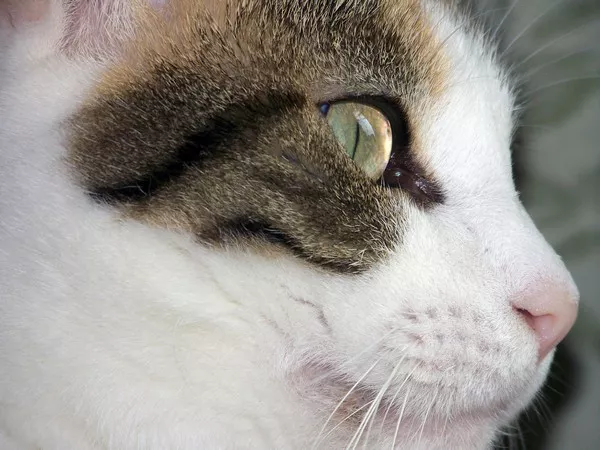Caring for bottle-fed kittens is a rewarding yet challenging experience. As a caregiver, understanding the various aspects of kitten health is crucial, and one of the most important indicators of their well-being is their bowel movements. This essay will explore how often bottle-fed kittens should poop, the factors influencing their bowel habits, and what caregivers can do to ensure their kittens remain healthy and happy.
Understanding the Basics of Kitten Digestion
Kittens, like all mammals, undergo a series of developmental stages that influence their nutritional needs and digestive capabilities. When they are born, they rely entirely on their mother’s milk for nourishment. However, circumstances such as orphanhood or the inability of the mother to nurse can necessitate bottle-feeding.
The Importance of Nutrition
The type of formula used for bottle-feeding significantly impacts a kitten’s digestion and, consequently, their bowel movements. Commercial kitten milk replacers are designed to mimic the nutritional profile of a mother cat’s milk, providing essential fats, proteins, and carbohydrates. It is vital to choose a high-quality formula, as poor nutrition can lead to digestive issues, including constipation or diarrhea.
The Role of Age in Digestion
The age of a kitten plays a significant role in determining how often they should poop. Newborn kittens, typically up to two weeks old, have immature digestive systems. They may not poop every day, especially if they are still adjusting to bottle feeding. As they grow and their digestive systems mature, the frequency of bowel movements will change.
General Guidelines for Bowel Movements in Kittens
Frequency of Bowel Movements
For healthy, bottle-fed kittens, the general guideline for bowel movements is as follows:
Newborn to 2 Weeks Old: Kittens in this age group may poop anywhere from once every 1-3 days. This is considered normal, as their digestive systems are still developing and they are consuming small amounts of formula.
2 to 4 Weeks Old: As they grow, the frequency of bowel movements typically increases. Kittens at this stage may poop 2-4 times a day. Their digestive systems are becoming more efficient as they begin to consume more formula.
4 to 8 Weeks Old: By the time they reach 4 weeks, kittens should be pooping 3-5 times a day. Their diet may begin to include small amounts of solid food, which can also influence their bowel habits.
8 Weeks and Older: At this point, kittens are usually fully weaned and eating solid food. They may poop 1-3 times a day, similar to adult cats, depending on their diet and individual digestive health.
What Constitutes Normal Stool
Understanding what normal stool looks like is crucial for monitoring a kitten’s health. Healthy kitten poop should be:
Color: Light brown to dark brown.
Consistency: Firm but not hard, resembling a soft log. It should not be watery or excessively dry.
Odor: While all cat feces have an odor, it should not be overwhelmingly foul.
Factors Affecting Bowel Movements
Several factors can influence how often a bottle-fed kitten poops:
Diet: The quality and type of formula or food consumed can significantly affect digestion. High-quality kitten milk replacers are easier to digest than lower-quality options.
Hydration: Dehydration can lead to constipation. Ensuring that kittens are adequately hydrated is vital, especially if they are experiencing diarrhea.
Health Status: Illness, parasites, or infections can disrupt a kitten’s digestive system, leading to changes in bowel movement frequency and consistency.
Stress: Environmental changes or stress can affect a kitten’s digestive health. A calm and stable environment is essential for their well-being.
Monitoring Kitten Health Through Bowel Movements
Keeping Track of Frequency and Consistency
As a caregiver, it is essential to monitor the frequency and consistency of a kitten’s bowel movements. Keeping a log can help identify any changes that may indicate health problems. If a kitten goes more than 48 hours without pooping, it may be a sign of constipation, and a veterinarian should be consulted.
Signs of Constipation
Constipation in kittens can be uncomfortable and may lead to more severe health issues if not addressed. Signs of constipation include:
- Straining or vocalizing while trying to poop.
- Hard, dry stools.
- A decrease in appetite or lethargy.
- Abdominal discomfort or bloating.
If any of these signs are observed, it is essential to seek veterinary advice promptly.
Signs of Diarrhea
Diarrhea can also be a serious concern for bottle-fed kittens. Signs include:
- Watery, loose stools.
- Increased frequency of bowel movements.
- Signs of dehydration, such as dry gums and lethargy.
Diarrhea can lead to rapid dehydration, so it is crucial to address it immediately by consulting a veterinarian.
Tips for Managing Bowel Movements in Bottle-Fed Kittens
Establishing a Routine
Creating a feeding and elimination routine can help regulate a kitten’s bowel movements. Feeding kittens at the same times each day can encourage regularity in their digestive systems.
Gentle Stimulation
For newborn kittens, gentle stimulation of the genital area with a warm, damp cloth can help encourage bowel movements. This mimics the mother cat’s grooming behavior and can be beneficial, especially for very young kittens.
Proper Feeding Techniques
When bottle-feeding, ensure that the formula is warmed to body temperature and that the nipple allows for a steady flow of milk. Overfeeding can lead to digestive upset, while underfeeding can result in insufficient nutrition, both of which can affect bowel movements.
Gradual Introduction of Solid Food
As kittens approach 4 weeks of age, gradually introducing solid food can help transition them to a more adult diet. Monitor their response to solid food and adjust their diet accordingly to maintain healthy bowel movements.
Conclusion
Understanding how often bottle-fed kittens should poop is crucial for their health and well-being. Caregivers must be vigilant in monitoring their kittens’ bowel movements, as this is often the first indicator of any underlying health issues. By providing proper nutrition, hydration, and a stable environment, caregivers can help ensure that their bottle-fed kittens thrive during this critical stage of development.
With the right knowledge and care, bottle-fed kittens can grow into healthy, happy cats, ready to take on the world.
Related topic:

























